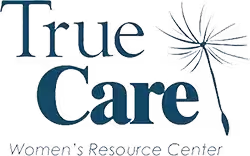Why does my Blood Pressure Matter when I’m Pregnant?
Pregnancy is a time of many changes in a woman’s body. One of those changes is in the amount of blood in her body. Her blood volume increases to meet the needs of her growing baby. Most women are able to tolerate the increased fluid by adapting without any increase in blood pressure; however, for some women, the extra fluid leads to high blood pressure. High blood pressure is dangerous for both mom and baby.
Effects on Baby
When a pregnant woman has high blood pressure, the placenta which nourishes her baby gets less blood flow. The baby receives less oxygen and nutrients than it needs causing low birth weight and sometimes preterm birth. Frequently an early delivery is needed to prevent life threatening complications. Rarely, the placenta may even tear away from the uterus; this is called a placental abruption and can lead to death of the baby and mom if not caught in time.
Effects on Mom
High blood pressure is a serious condition whether a woman is pregnant or not. Over time, according to the Mayo Clinic, high blood pressure can cause a heart attack, stroke, aneurism, heart failure, kidney troubles, metabolic syndrome, and even cause trouble with a person’s memory.
For pregnant women, all of the general complications of high blood pressure remain, along with a few extra concerns. Two blood pressure conditions unique to pregnancy are preeclampsia and HELLP syndrome. Most experts consider HELLP syndrome to be a form of preeclampsia.
Preeclampsia
This disorder is characterized by high blood pressure and protein in the urine. The symptoms include headaches, blurred vision, and swelling especially in the feet and ankles. Preeclampsia usually begins after 20 weeks gestation and can even develop during the first six weeks after the baby is born. Preeclampsia that is not controlled can lead to eclampsia (seizures) and organ damage in the mom. If a woman develops seizures, delivery is necessary no matter how early the baby is. Preeclampsia can also lead to HELLP Syndrome.
HELLP Syndrome
According to the Preeclampsia Foundation, HELLP stands for:
H (hemolysis, which is the breaking down of red blood cells)
EL (elevated liver enzymes)
LP (low platelet count)
This is a life threatening condition. Symptoms include headache, nausea and vomiting with pain after eating, abdominal and chest tenderness on the right side (from liver distention), shoulder pain, bleeding, changes in vision, and swelling. Women experiencing HELLP may need blood or platelet transfusions and often need to deliver early.
Preeclampsia.org states that “Globally, preeclampsia and other hypertensive disorders of pregnancy are a leading cause of maternal and infant illness and death. By conservative estimates, these disorders are responsible for 76,000 maternal and 500,000 infant deaths each year.”
Prenatal Care is Important
The serious nature of high blood pressure poses a huge risk for moms and babies. Prenatal care lets the doctor monitor the woman throughout her entire pregnancy. He/she is able to notice any changes in blood pressure before they become serious. When caught early the devastating health effects can be kept to a minimum. True Care recommends routine prenatal care for all pregnant women. If you are pregnant and suddenly develop swelling, headaches, vision changes, or you are just not feeling right, call your doctor immediately and get checked.
